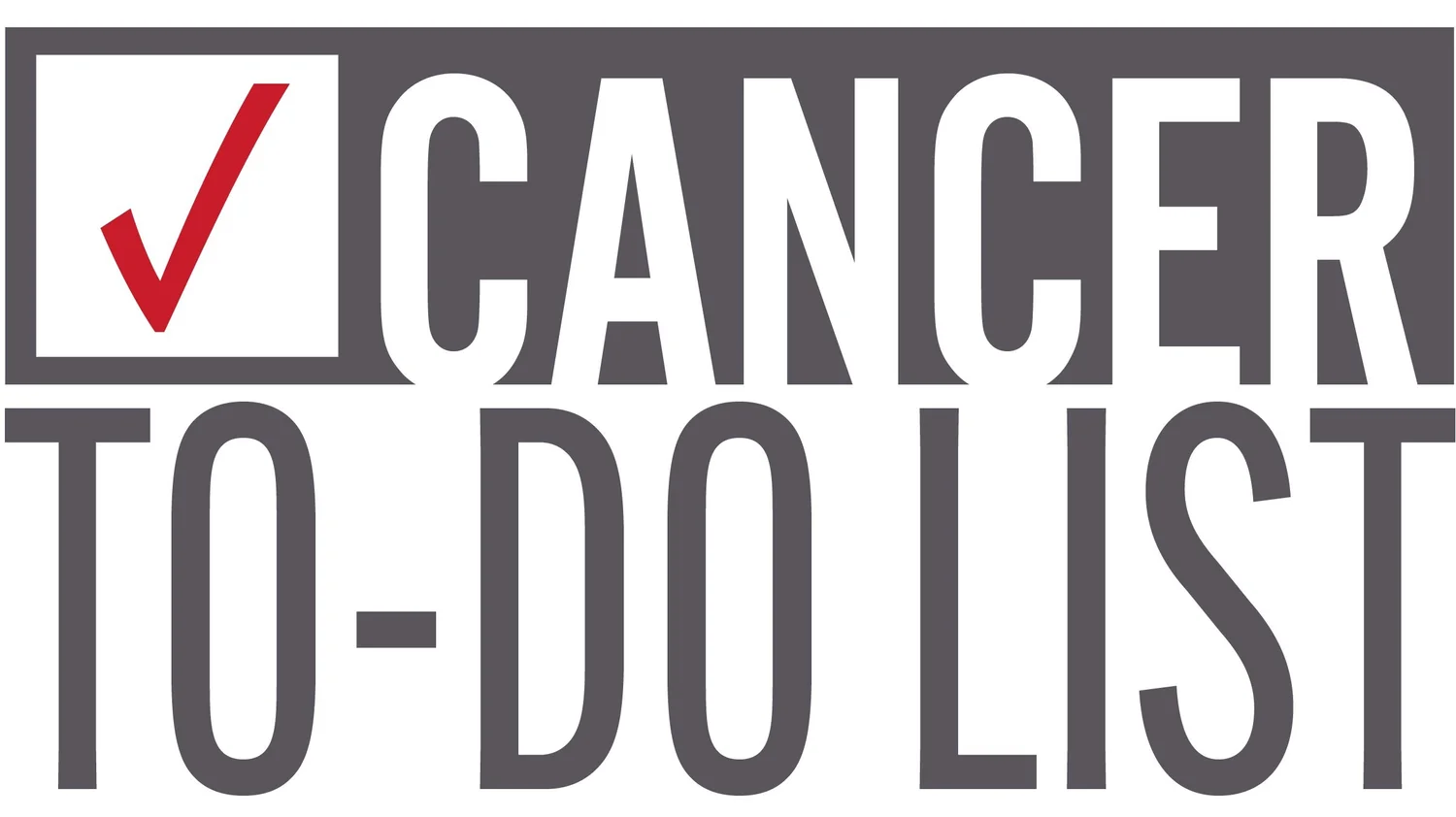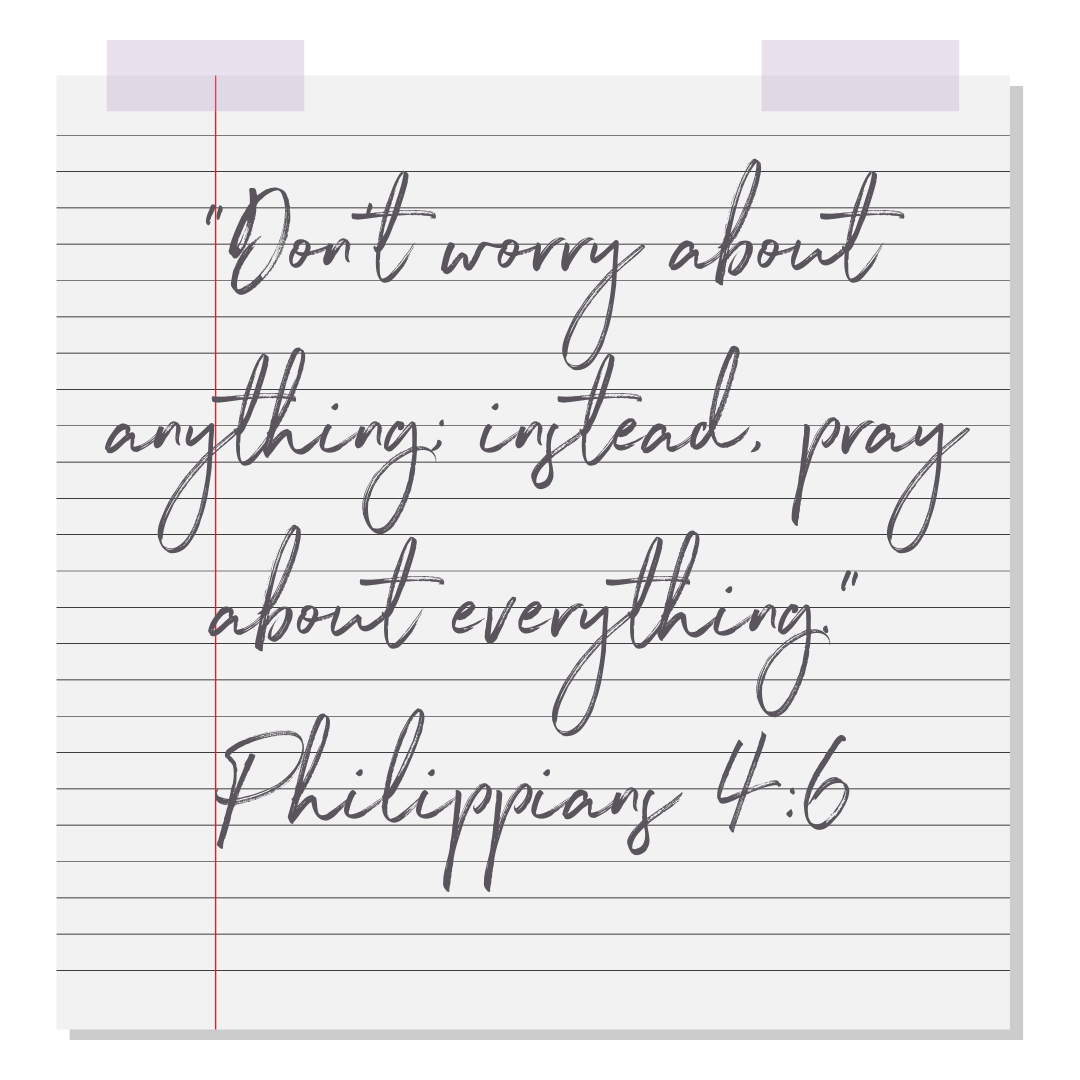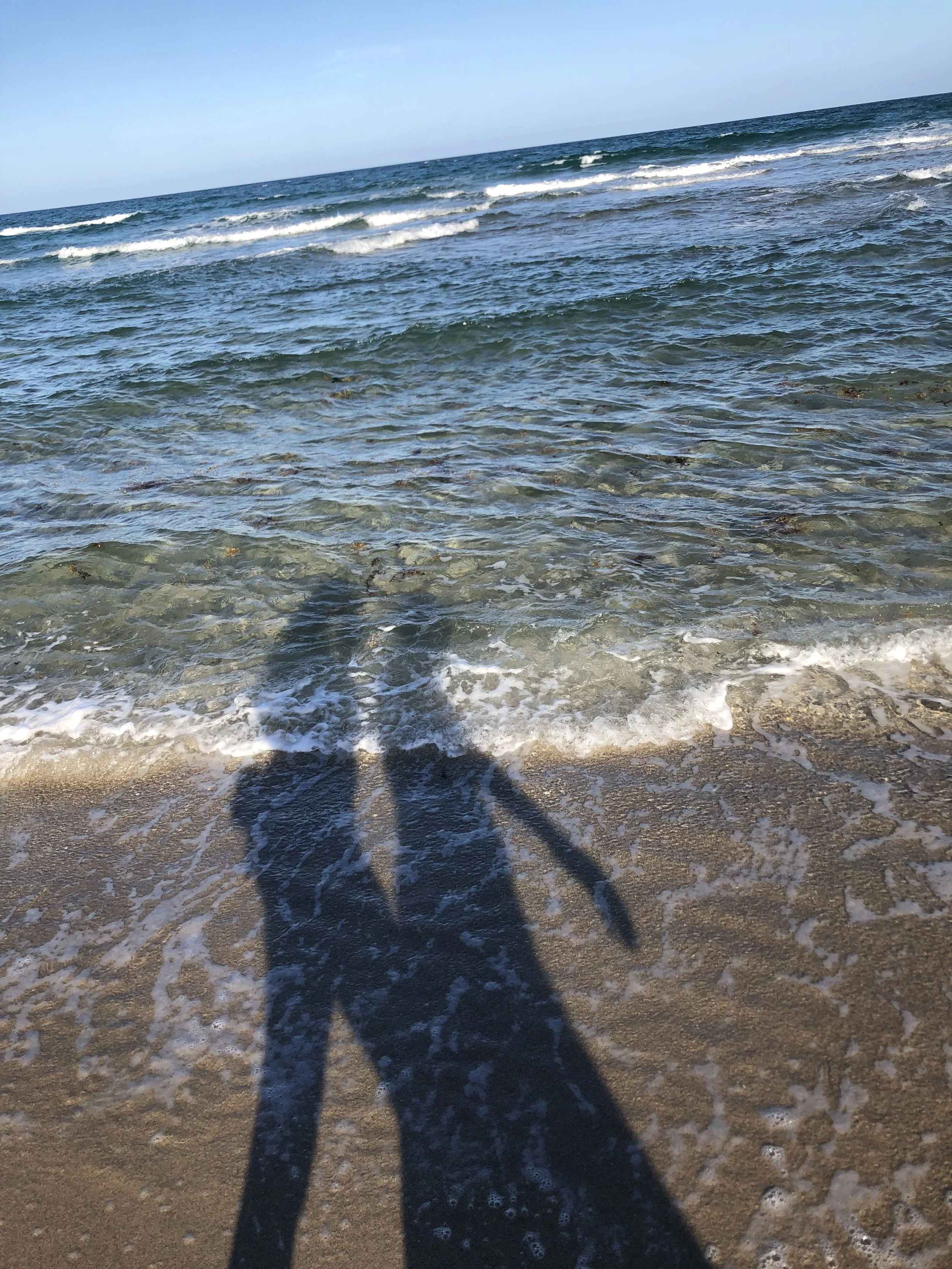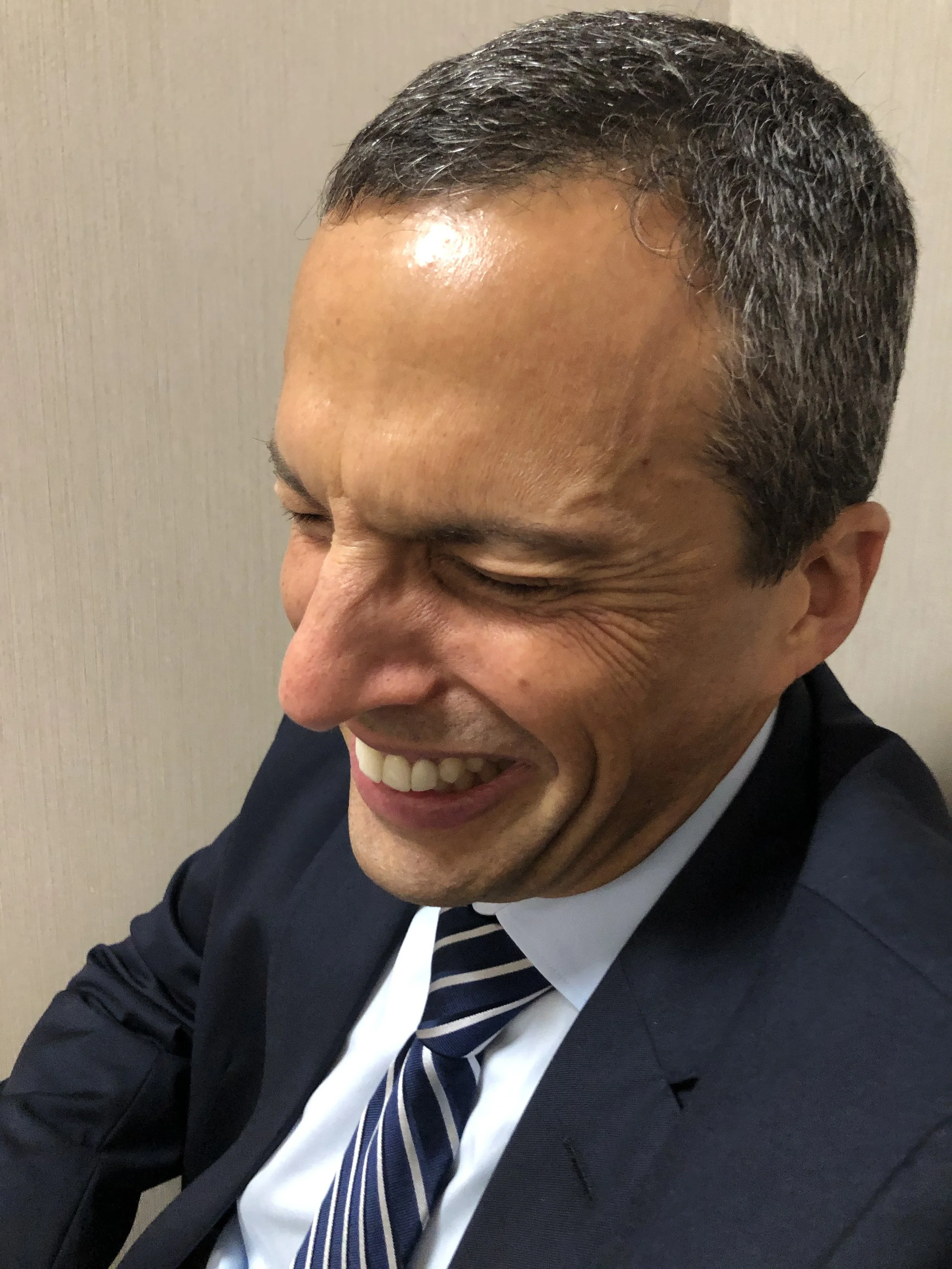
Thrive - Basics
De-Stress
WHY de-STRESSing is IMPORTANT
There is a large body of evidence showing that stressful life events and major negative life changes can increase the risk of disease, including cancer. A study done on mice showed that stress caused cancer to spread through the lymph system. The researchers also gave the mice beta-blockers to see whether or not metastases could be inhibited by blocking stress-signaling pathways. The results were that the beta-blockers reduced lymph node and distant metastases, as well as inflammation. The impact of the stress was not only psychological, but also biological. https://pubmed.ncbi.nlm.nih.gov/26925549/
Stress is often called the silent killer. The constant barrage of stress has snuck up on us as a society. It’s something we have grown accustomed to, and we even feel it is a badge of honor if we are going through a lot, juggling lots of balls in our lives, and managing very busy schedules. Stress is directly associated with some of the leading causes of death in the United States. A 2021 study shows that physical and mental stressors can lead to sudden cardiac death (SCD). https://www.autonomicneuroscience.com/article/S1566-0702(21)00151-X/fulltext
Extreme stress generates a higher production of negative hormones. Studies have shown that stress releases cortisol, epinephrine, and adrenaline. These stress hormones weaken the immune system. The resulting weakened immune system is a problem! Anyone facing cancer needs to have a strong immune system.
When we are happy and relaxed, positive hormones (serotonin, dopamine, oxytocin, relaxin, and endorphins) are released, strengthening the immune system. In addition to increased immunity, studies show that happy hormones also result in lower body weight, deeper sleep, and so much more.
I eventually came to realize that stress was probably the greatest contributor to my diagnosis. I don’t think stress itself causes cancer, but I do think it can cause unhealthy obsessions to take over and drown out self-care.
The Bible says not to be anxious about ANYTHING but, instead to pray to God with thanksgiving. The next verse, Philippians 4:7 says, “Then you will experience God’s peace, which exceeds anything we can understand.” Anytime I am anxious I pray according to these verses and I feel the peace that passes all understanding!
-
Everyone person’s stressor is as unique as a fingerprint. Identifying what is creating stress will begin the process of de-stressing.
-
When the body is more concerned with short-term survival rather than long-term protection, the immune system is suppressed.
-
Learn all kinds of practical ideas for removing stress and bringing peace into your life.
-
As a to-do list aficionado, I was in a constant state of stress. Cancer forced me to learn to de-stress in order to survive and thrive.
What’s Your Stressor?
“What’s Got You Hooked” stressor
Is there something nagging at you that you can’t let go of? If there is, I certainly don’t need to give you examples, as you already know what is constantly on your mind. But for many, it might be an injustice that has occurred at work, a child misbehaving, your increasing body weight, money or relationship problems, etc.
Get into a state of gratitude and let go of whatever has got you “hooked,” like obsessive thoughts, something that is bothering you, or forgiving someone. If you eat all the right foods, yet you are depressed, angry, or upset, those negative emotions will trump all you are doing to be healthy. Be concerned with the thoughts you are thinking as much as the foods you are eating. Your inner world (thoughts) significantly impacts your outer world (health outcomes).
“Everyone Else First” stressor
We all want to care well for those we love. The safety rules of flying apply to life as well: you must put on your own oxygen mask first before helping your child. For me, everything and everyone else came first — ahead of taking thorough care of myself. Leading up to my diagnosis, my issue was trying to take care of the people in my life in the midst of a traumatic time: helping Joel get healthy, keeping life normal for our kids during his treatment, and keeping my business thriving. Read “Striving For More Mary, Less Martha” and “Healing And Moving On” for more about that season.
Caregivers, in particular, have immune suppression, increased inflammation, slower wound healing, and are more susceptible to bacterial infections. According to one study, chronic stress promoted higher oxidative stress and aging in mothers of chronically ill children. The white blood cells of the mothers taking care of chronically ill children were compared to mothers of healthy children. The longer a woman spent caregiving for a sick child, the more stressed she was, and the faster she aged. In the most stressed out women, the research results suggested that they had aged at least ten years more than the least stressed women of similar biological age. It is important to realize that stress also decreases effective immune function. https://pubmed.ncbi.nlm.nih.gov/15574496/
“Perfectionist” stressor
Stress comes in many forms, one of which is the amount of pressure you put on yourself each day to be the perfect ___________ (you fill in the blank!) No matter what you are trying to achieve in your life, you won’t get a certificate for “best in class,” and even if you did, it wouldn’t be worth the negative effects from the pressure you put on yourself to achieve it.
Trying to identify why you are needing to be perfect would be a good exercise. Through counseling, I realized that my need to be perfect stemmed from several false beliefs that Robert McKee identifies in his book, The Search for Significance:
I must meet certain, unreasonable standards to have value and be able to accept myself.
I must have the approval of others in order to accept myself.
I must be perfect in order to avoid failure.
The root of perfectionism is believing your self-worth is based on your achievements, which leads to the next stressor.
While shopping one day, Hannah found an ideal to-do list!
“To-Do List” stressor
Are you driven by getting things done? Do you find your value in your accomplished tasks, to-do list, or your job description? If your main motivator is going and doing, that drive may steer you right into health issues.
I was the most forgetful child! In order to win the battle with both forgetfulness and my parents, I started making a master to-do list when I was in 8th grade. That decision turned into an obsession. I became a to-do list aficionado at a young age, and I carried that into adulthood. I could get more done in 24 hours than most people could in a week. I wore this like a badge of honor — to my detriment.
In order to survive, I knew I had to end my unhealthy relationship with my to-do list. I did it, or rather, I’m doing it daily. It is an ongoing process of checks and balances each day. I still keep a to-do list, and I always will, but now it includes time to breathe, work a little, play a little, exercise, and let a lot go!
“lifelong Cancer Patient” stressor
I worked to avoid taking on the stress of being a full-time cancer patient. This includes both your way of thinking and your way of living. Don’t allow cancer to consume your thoughts or your life.
Everything starts with our thoughts. Don’t wake up and think of yourself as a former or current cancer patient; don’t make cancer your identity. Instead of allowing cancer to pull you into a downward spiral, let it be the motivator to embrace a positive mindset and a lifelong commitment to your health routine.
Figuring out how not to live like a cancer patient and not allow my schedule to be consumed by appointments, research, and treatments was very hard at first because I’m an all or nothing person. I was afraid to let my guard down — in regard to my own health or taking care of Joel. Ultimately, I realized I needed to give this daily overwhelm to the Lord, and fill my days with peace, joy, and laughter.
I love this quote shared by Jeanne Wallace, Ph.D., C.N.C. in her book, Hope Never Dies, about her mom's journey with cancer. "Don't let cancer take over your life. A wise woman with invasive bladder cancer, my mom, shared with our Facebook community her unique strategy for effectively managing the stress: 'I am only going to have cancer before noon. It is too exhausting to be a cancer patient all day. Therefore, all cancer business must be accomplished before noon, and will have to be squeezed in before or after my hike.’”
I endeavored to find a simple plan each day for taking care of myself. I enjoy life and focus most of my attention on the basics and the benefits of practicing my daily health routine: diet, hydration, exercise, de-stress, and sleep — keeping it simple all along the way.
In summary, if you have any of these tendencies, please take the time to evaluate your own life and habits. Take pressure off of yourself by releasing these approaches to life. After my diagnosis, I focused on redesigning my flawed ways of thinking and living.
Your Body’s Reaction to Stress
FIGHT OR FLIGHT
Stress causes an activation of the sympathetic nervous system, also called the “fight-or-flight” system. If a bear is chasing you, the fight-or-flight response will serve you well; but in our modern times, most of us don’t face life-or-death situations on a daily basis. A threat of some kind triggers the adrenal glands to release stress hormones like adrenaline and cortisol. Adrenaline rushes require the entire body to jump into action to enable survival, but the changes that take place cannot be sustained long term.
When the body activates the fight-or-flight response, it directs its energy, oxygen, and blood flow away from the immune system and toward the muscles that can help fight or run away from the perceived threat. In other words, the immune system is suppressed when the body is more concerned with short-term survival rather than long-term protection.
EUSTRESS AND DISTRESS
Eustress is good stress, and it creates feelings of confidence, excitement, satisfaction, and meaning. Eustress is short-term — it motivates us, is perceived as something we can handle, and it feels exciting. Examples would be starting a new job, marriage, having a baby, buying a home, and taking a vacation.
Distress, on the other hand, is bad stress. It can be either short-term or long-term — it causes anxiety, it is perceived as out of our control, it feels unpleasant, and can lead to mental and physical problems. Examples of distress are the death of a family member, divorce, illness or injury, loss of job, money problems, etc.
Our lives are a compilation of events where we alternate between eustress and distress, and our bodies are designed by God to handle the associated physiological changes. The physiological changes that occur from eustress or distress can be managed if they are short-term. It’s when the stressors are ongoing (chronic) that health is eroded.
Getting outside is a wonderful way to de-stress.
CHRONIC STRESS
The fight-or-flight situations have to be few and far between, not the norm for your body. The problem is when the stress becomes chronic or ongoing. When the fight-or-flight becomes sustained, the body and mind do not have any reprieve. The result of chronic stress is a consistent feeling of pressure or overwhelm over a long period of time. Examples are: emotional stress (difficult emotions such as anger, sadness, or frustration); environmental stress (where you live and work); relationship stress (how you relate to family, friends, and co-workers); and work stress (pressures and challenges related to your job). Think of chronic stress as anything in your life that is negatively influencing you, and you are unable to get away from it. Once the adrenal glands are tapped out from working so hard, a negative ripple effect takes place in the body and may manifest in the following ways: weight gain, faster aging, diminished thyroid function, blood sugar issues (including insulin resistance), increased sugar cravings, low energy, aches and pains, insomnia, weakness, change in appetite, increased drug or alcohol use, less socialization, and unfocused thinking. As you can see, chronic stress has a debilitating impact on our bodies, and we must awaken to this silent killer!
STIMULATION
Because people are under such an enormous amount of stress, they may instinctively think it would be ideal to eliminate all of the stress from their lives. But there are benefits to having a certain level of stress. God designed us to work, create, and achieve. There is even one study that shows that "prolonged low key stress of everyday life" can reduce the risk of breast cancer because it reduces the production of estrogen. https://www.mendeley.com/catalogue/340cf993-ce89-3782-bf5b-74a95cd6d66e/
Adaptation can be a positive result of the stimulus of stress. Learning to be calm in the midst of a storm can bring lasting peace to your life. Not only do you become more resilient and less fragile, but you learn to not sweat the small stuff.
PERCEPTION
How you view stress and react to it is everything. The following study showed that the amount of stress and the perception of that stress affects health. Those who reported a great deal of stress and a significant impact of that stress on their health had a 43% increased risk of premature death. https://www.ncbi.nlm.nih.gov/pmc/articles/PMC3374921/
Why is it that some people who get stuck in traffic get angry and allow it to ruin their day, while others who are in the same traffic jam see it as a minor distraction, or better yet, use it as an opportunity to listen to a podcast or call a friend? The lens these two people are looking through is different, which explains why their reactions are different. The term “rose-colored glasses” is a real thing! Try a pair on, and your health will thank you!
“It’s not stress that kills us, it is our reaction to it.”
Ideas for De-stressing
A MOMENT OF SILENCE
The #1 tip for managing stress is to find at least 12-15 minutes of quiet each day.
Studies show that even short periods of routine meditation and stress management activity dramatically reduce the impact of stress, improve mental health, and reduce the genetic aging process. https://pubmed.ncbi.nlm.nih.gov/17785865/
Learn to take a pause, and schedule consistent breaks throughout your day.
My Experience: I have learned to sense when I need a break. I turn off my brain and take a walk, sit outside, listen to music, or just be still. I always had a hard time sitting still because I felt like I was being unproductive. Now I enjoy still, quiet moments.
ACUPUNCTURE
Ancient Chinese method of sticking very thin needles into designated points along invisible meridians (network of energy channels) that run through the body.
Visit the CAM Treatment page to learn more.
Stimulates the release of endorphins (natural feel-good hormones).
Reduces the level of stress hormones, like cortisol.
When acupuncture is used to mitigate stress, treatment is generally more aggressive, meaning you should receive treatment 1-2 times per week for the first two weeks.
Your acupuncturist will determine the best treatment plan for your life and situation.
A potential role for acupuncture was found in the following cancer symptoms: pain, nausea and vomiting, xerostomia (dry mouth), hot flushes, fatigue, anxiety, depression, and insomnia. https://pubmed.ncbi.nlm.nih.gov/20605536/
Our Experience: I went to acupuncture intensely for over a year, two times per week for many months, then once a week, then twice a month, and now once a month. Read “Traditional Chinese Medicine Experience” for more of my experience. Joel did acupuncture during chemotherapy; I did acupuncture before, during, and after my diagnosis.
BATH
Add a few drops of lavender essential oil to the tub and take a relaxing bath; lavender aromatherapy has been studied and shown to reduce stress and anxiety.
Take a detox bath 2-3 times per week. Soak in the tub for at least 20 minutes. Visit the Julie’s online favorites page for the detox bath recipe.
Our Experience: Joel didn’t take detox baths during treatment, but he did do foot baths. I started taking detox baths after my diagnosis, and I take them regularly now.
Foot baths are naturally soothing; just one foot soak has the power to calm the mind and put the body into a state of relaxation.
I’ll always remember the feeling I had when I snapped this photo on our beach walk. This walk was the first time I truly let go and started learning what it means to be quiet.
Fun and laughter during Joel’s chemo. Good for us!
BE OPTIMISTIC
Having an optimistic attitude will reduce stress.
One study found that optimistic people had more stable cortisol levels. https://www.ncbi.nlm.nih.gov/pmc/articles/PMC4151978/
By envisioning positive outcomes, you will feel less stressed and more optimistic.
Learn to focus on what is right about any given situation. Instead of focusing on the glass being half-empty, see it as half-full; instead of focusing on the chance of rain, focus on the chance of sunshine.
Having a positive attitude (emotionally, physically, and spiritually) and participating with a peer group contributes to feelings of hope, optimism, and a fighting spirit. https://pubmed.ncbi.nlm.nih.gov/15815179/
My Experience: I have carefully focused on having positive thoughts and speech. I reminded myself daily to focus on this, and I even asked my family to help by encouraging positive conversations until I formed a habit. One of my favorite books, and the one that helped me shift my negative thinking to positive, is The 4:8 Principle by Tommy Newberry.
BE SPONTANEOUS
Spontaneous people tend to not be as stressed.
Life rarely goes as we want or expect it to, so if we have a “go with the flow” attitude, then we are not as upset by situations we don’t expect; this results in less of a stress response.
When stress arises, spontaneous people know how to do something different in order to relieve the stress and get over the current obstacle.
My Experience: I am learning not to plan everything out and to leave blank space in my schedule.
BREATHE DEEPLY
Stress changes breathing patterns. It causes a person to take small, shallow breaths — using the shoulders rather than the diaphragm to move air in and out of the lungs. This style of breathing disrupts the balance of gases in the body. Deep, belly breathing oxygenates the tissues and helps to calm the body. When you feel stress affecting you, stop and breathe deeply. Until you form the habit, consider setting a reminder on your phone to deep breathe. Below are some other breathing and focus techniques you can investigate. Practice to see which best suits you.
BREATHING TECHNIQUES
4-7-8 Breathing
Breathe in through your nose for a count of four seconds; hold your breath for seven seconds; exhale for eight seconds, making a “whoosh” sound through pursed lips.
Alternate Nostril Breathing
Involves breathing in and out of one nostril at a time, while holding the other nostril closed.
Body Scan
Involves paying attention to parts of the body in a gradual sequence from feet to head.
Box (or Four-Square) Breathing
Involves breathing in through your nose on the count of four, holding your breath for the count of four, exhaling on the count of four, and holding your breath for a count of four.
Counting While Breathing
Breathing in through the nose, take a deep breath in and out, and count one. Keep breathing and counting each breath until you reach ten. Then count backward down to one.
Guided Imagery
Encourages you to dwell on a positive image, scene, time, or person that brings feelings of peace and happiness, and maintaining that focus as you breathe.
Diaphragmatic Breathing
Place one hand on your chest and the other on your abdomen. The goal in this breathing technique is to make sure the hand over your abdomen is moving and the hand over your chest is not. You should feel your abdomen rise with the inhale, then fall with the exhale.
Extended Exhales
Involves working toward an inhale to exhale ratio of 1:2, i.e. inhaling for two counts and exhaling for four counts (one, one-thousand, two, one-thousand).
MY BREATHING JOURNEY
A CAM doctor actually taught me how to deep breathe shortly after my diagnosis. He called it God Breathing. Genesis 2:7 says, “Then the LORD God formed a man from the dust of the ground and breathed into his nostrils the breath of life, and the man became a living being.” I realized that I have always been a shallow breather — only using my upper chest to breathe. Before I get out of bed in the morning, I practice deep breathing a few times. I do the same thing at night before going to sleep. If I awaken in the middle of the night to use the restroom, I put myself back to sleep with deep breathing. Deep breathing has become such a habit, that I find myself naturally deep breathing throughout each day. I even deep breathe naturally when running outdoors.
My deep breathing involves a combination of several of the above techniques:
I put my left hand on my chest and my right hand on my lower abdomen and focus on my abdomen expanding when I inhale (diaphragmatic breathing). I inhale for two counts and exhale for four (extended exhales) and my abdomen retracts. I also visualize any unhealthy cells exiting my body as I exhale and being replaced with new, healthy tissue as I inhale (guided imagery).
CANDLES
There are a variety of scented oils and candles you can use to relieve stress. The combination of both strong scented candles and oils is known to reduce anxiety. Make sure to use scented candles/oils that are appealing to you. https://www.ncbi.nlm.nih.gov/pmc/articles/PMC5198031/ https://www.ncbi.nlm.nih.gov/pmc/articles/PMC6007527/
You can diffuse essential oils easily in this diffuser.
It is very important to use pure, non-toxic essential oils and pure, non-toxic candles.
Beneficial scents for reducing stress:
Lavender — relaxes the mind and body.
Clary sage — lifts mood.
Cinnamon — makes you feel refreshed.
Orange — reduces stress.
Lemon — improves mood.
Apple — controls anxiety.
Peppermint — increases alertness and enhances focus.
My Experience: I light candles every day. I have battery-powered candles all over the house that light up every evening. It elicits a peaceful environment in our home and give me a sense of calm.
DIET
Eating more fruits and vegetables is linked to lower stress levels. https://www.sciencedaily.com/releases/2021/05/210513100030.htm#:~:text=Eating%20a%20diet%20rich%20in,consumed%20less%20than%20230%20grams
Consuming too much sugar may play a key role in elevating cortisol levels and abdominal fat. https://pubmed.ncbi.nlm.nih.gov/27345309/
My Experience: When I learned the information about chronic stress and its impact, it confirmed that my healthy diet all of the years leading up to my cancer diagnosis may have actually saved my life. I used to crave sugar all the time (probably because my cortisol was elevated from my stressful lifestyle), and I ate mostly bread and cookies in my 20s. But in my 30s, I removed processed foods from my diet and ate mostly whole foods. It’s possible my healthy diet offered me some protection against the stress response.
DINE AND ENJOY!
Some people don’t eat when they are under stress because they don’t feel hungry. According to the American Psychological Association, over a 30-day period, thirty percent of adults report skipping a meal due to stress. Forty-one percent of adults who report skipping a meal due to stress report doing it weekly or more. The majority of adults (sixty-seven percent) who report skipping meals due to stress attribute it to a lack of appetite. Twenty-six percent say they skipped a meal because they did not have time to eat. https://www.apa.org/news/press/releases/stress/2013/eating
When you don’t eat enough food, cortisol is released because your body perceives the possibility of famine and undernourishment. Your body rations energy and stores fat, so not only do your adrenals get called into action, but your metabolism slows and your body fat increases. Stop and eat!
My Experience: I have started eating more slowly, chewing, resting, and digesting. At the time I was diagnosed, I wasn't eating enough. If I was eating, I was rushing to finish instead of taking a break and enjoying my food. The stress had taken over my life!
DITCH THE JUNK!
Junk food raises cortisol and increases your stress level: alcohol, caffeine, high-sugar foods, simple carbs (cakes, pastries, etc.), soda, and other processed foods.
Some people turn to processed food when under stress. According to a study published in the journal Nutrients, the consumption of fast food and levels of stress were directly proportional to each other. This means that low levels of stress were associated with low consumption of fast food, and vice versa. https://www.ncbi.nlm.nih.gov/pmc/articles/PMC6698097/
EXERCISE
Physical activity is a stress reliever.
Physical activity releases endorphins and other chemicals that enhance your sense of well-being.
The most important thing is to pick an activity you enjoy and move your body on a regular basis.
My Experience: When I was diagnosed, I wasn’t exercising enough. When I was exercising, I was just rushing to finish it — like it was a chore. With that approach, it certainly wasn’t relieving stress.
Visit the Exercise page to learn more.
LAUGH AND LET IT GO!
Laughter soothes tension, stimulates circulation, and creates muscle relaxation — resulting in the lessening of stress symptoms.
Watch funny movies or call a friend who makes you laugh.
Watch the healing journey of Saranne Rothberg, the founder of Comedy Cures and Stage 4 Cancer Survivor, who laughed in the face of her cancer after treatment didn't work!
Positive emotions and laughter actually improve immune function. Studies show that sick people with a positive attitude live longer than sick people who are negative. Happiness is a habit you can develop!
In the book Radical Remission: Surviving Cancer Against All Odds, author Kelly Turner, Ph.D. points out that happiness must be practiced daily by turning off fear and turning on joy.
To sum it up: work less, live more, laugh more, and enjoy life!
Our Experience: I try to laugh every day. I have realized that my perfectionism was out of control. Who really cares? I started singing the song from the movie Frozen, "Let it go, let it go!" Look at your life — in what ways do you need to let go?
MASSAGE
Massage reduces stress. A study finds that 10 minutes of massage or relaxation can activate the body's system for overcoming stress. https://www.nature.com/articles/s41598-020-71173-w\
Massage also: triggers relaxation, reduces muscle tension, reduces blood pressure, improves sleep, and improves mental health.
I took this picture at one of my doctor appointments shortly after my diagnosis. Joel and I couldn't stop laughing at something. I think the medical staff thought we were both crazy. The Bible says laughter is medicine.
music therapy
The playing of musical instruments or just listening to music has been shown to be helpful for cancer patients. https://www.ncbi.nlm.nih.gov/pmc/articles/PMC4890096/
Visit the CAM Treatment page to learn more.
One of my most emotional memories of music was hearing Joel singing "Oh My Soul" from Casting Crowns. I asked Joel why he was singing. He said, “It is the best therapy for me!”
“Oh, my soul. You are not alone. There’s a place where fear has to face the God you know. One more day, He will make a way. Let Him show you how, you can lay this down. ’Cause you’re not alone.”
NIGHTTIME ROUTINE
Know when to stop for the day. Many people feel they lack productivity, simply because there is always something more they could be doing. Yet there will always be things to do! Make sure you know what is most important to achieve on any given day, and allow yourself to feel accomplished once you’ve done that. Many people push themselves hard all day long, then expect to be able to fall into bed and get a good night’s sleep. Find the switch that you can flip to turn off the mind chatter. This could be putting your phone and computer away while taking a bath or reading a book. Maybe you need to make a list of anything on your mind that will need attention the next day. Developing a nightly ritual that will facilitate better sleep.
No blue light (LED) devices an hour before bedtime. Blue light disrupts melatonin production. Melatonin is the hormone your brain produces in response to darkness; light suppresses the secretion of melatonin, which then disrupts quality sleep.
Read a book. Reading before bed can reduce stress. Reading strengthens the mind. Strong cognitive function can help reduce mental chatter, which in turn, promotes a quiet state of relaxation.
Have a cup of herbal tea, like chamomile, which can increase feelings of warmth and calmness.
Avoid eating 2-3 hours before bed for better sleep. This allows your body to detoxify instead of digest during the night.
If you didn’t eat enough during the day and hunger is keeping you from sleeping, try eating a bowl of cooked oatmeal. It is full of melatonin, the sleep hormone. https://www.resperate.com/blog/oatmeal-the-perfect-bedtime-snack-for-sleep
Aim for 7-9 hours of sleep per night. Lack of sleep can increase the stress hormones circulating in your body.
You may feel more rested if you get to sleep earlier. As Benjamin Franklin said, “Early to bed, early to rise, makes a man healthy, wealthy, and wise.”
My Experience: My nighttime routine begins with turning off my phone. This is the way I “flip the switch.” Then I prepare for sleep: I rub lavender oil (diluted with jojoba oil) on my shins and on the bottoms of my feet; then I lie on my back and do deep breathing until I fall asleep.
Visit the Sleep page to learn more about the nighttime routine.
Our dog, Chuck, brings so much joy! This photo captures his personality so well!
PETS
Research suggests that pet therapy can reduce physiological and subjective stress and anxiety levels. https://pubmed.ncbi.nlm.nih.gov/29882342/
Our Experience: After my diagnosis, we added Chuck, our beagle, to the family. I can attest to the fact that he has helped reduce stress for all of us — especially Joel and me. One of the ways Chuck encourages de-stressing is that he requires several walks per day. There is growing evidence that short walks can be a protective factor for a range of long-term health conditions. https://pubmed.ncbi.nlm.nih.gov/28105761/
PLAN AHEAD
If you are entering a high-stress situation or season, prepare by setting up support:
If you’re getting ready for a busy season, like sports season with kids, making a healthy eating plan can help you resist the impulse to snack on unhealthy food or resort to fast food.
If you are facing a work deadline, look for ways to reduce stress. This might include adjusting your schedule to add extra exercise.
If the anniversary of the death of a loved one causes increased stress levels, plan to be with friends who will support you during that difficult time.
I believe stress was a huge contributor to my cancer. Before my diagnosis, a dear friend of mine often said, "Julie, how are you doing everything you are doing? You are some kind of superwoman! You get more done in 24 hours than most of us get done in a week." I took this as a compliment, but it should have been a huge wake-up call; a chance to recalibrate.
Unfortunately, I was living in a perpetual state of fight-or-flight, which wreaks havoc on the body. In addition to dealing with the “completing my to-do list” mentality, I had also been on a grueling two-year journey: helping Joel go through chemo (twice), radiation, and dealing with the pain of thinking that I might lose my husband and best friend. I was also trying to help our kids deal with the emotional burden of Joel being sick, and I was striving to keep life at home as normal as possible for them.
The chronic stress caused my health to break down. While Joel was going through chemotherapy, I kept getting colds and even had a bout with the flu. I had a chronic cough that would not go away. I also began getting tooth infections. I took several rounds of antibiotics to get rid of one tooth infection, but ultimately had to have the tooth pulled. When I learned the information about chronic stress and its impact, I think it confirmed for me that my healthy diet all of the years leading up to my cancer diagnosis may have actually saved my life.
It never dawned on me how stress might be affecting my body. I feel like a cancer diagnosis was a wake-up call for me. A chance to almost step inside my brain and experience the intensity of how I was thinking about each day, and then learn to control that immense stress. I have learned to harness that drive to get everything done today, and I have turned it around these days to operate with the right perspective: do the important things first, and let go of the seemingly “urgent” things that pop up and demand attention. More often than not, those things can wait.
In addition to realizing the need to recalibrate my life, I started realizing how stress was affecting my gut health. In spite of my healthy diet, my gut health was not good. It was shocking for me to learn that stress affects not only digestion, but all aspects of health. I needed to reduce stress in order to fix my gut, and ultimately, my immune system. This newfound realization and subsequent decision to learn stress management has resulted in numerous benefits. My mood, sleep, and gut health have all improved. I believe, without a doubt, these changes are positively affecting any remaining cancer cells. Visit the Gut Health page to learn more.
My De-stress Journey
I love that Jesus encouraged his disciples to get away and rest a while. I think that is what He did for me through cancer. He taught me to rest, de-stress, and draw closer to Him.
Learn when to stop for the day and rest.
Next Up...
Sleep
Sleep disorders are more common in people with cancer. According to University of Chicago sleep researcher, Eve Van Cauder, all systems of the body are affected by even minimal sleep deprivation.













